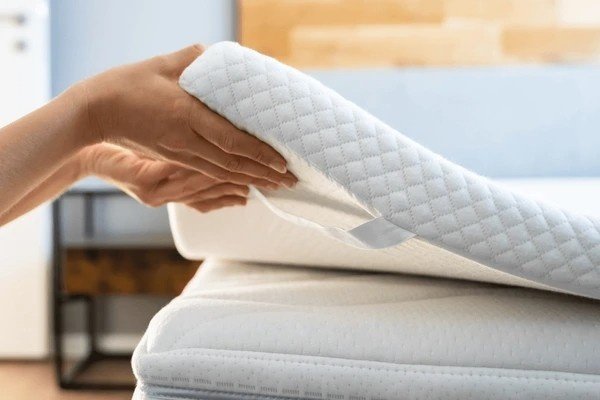As I searched for a reliable water heater for my home, I realized just how many options there are on the market today. It’s not just about getting hot water anymore; it’s about finding the right one that fits your needs, lifestyle, and budget. In this comprehensive buying guide, I will walk you through everything you need to know about water heaters, from types and sizes to energy efficiency and the factors you should consider before making a purchase.
Table of Contents
Why Choosing the Right Water Heater Matters
A water heater is an essential part of your home, providing hot water for showers, dishes, laundry, and other daily needs. Getting the wrong one can lead to higher energy bills, inadequate hot water supply, or even unnecessary repairs. A good water heater, however, will provide comfort, save you money in the long run, and require minimal maintenance. With that in mind, let’s dive into what you should consider before purchasing a new water heater.
Types of Water Heaters
There are several types of water heaters available, each offering unique benefits. Let’s break them down to see which might be best for your home.
1. Tank Water Heaters
Traditional tank water heaters are the most common type you’ll find in homes. They store a large amount of water (usually between 30 and 80 gallons) in a tank and heat it as needed. The water is kept hot at all times, ensuring that it’s ready whenever you need it.
- Pros:
- Reliable hot water supply.
- Inexpensive initial cost.
- Simple installation.
- Cons:
- Higher energy consumption since water is constantly heated.
- Limited hot water supply – once the tank is empty, you’ll have to wait for it to heat up again.
2. Tankless Water Heaters (On-Demand)
Tankless water heaters provide hot water only when you need it, making them an energy-efficient option. They don’t store water in a tank, so they won’t waste energy by constantly heating water. Instead, they heat water on demand as it flows through the unit.
- Pros:
- Endless hot water supply.
- Lower energy consumption.
- Compact design, which is great for smaller spaces.
- Cons:
- Higher initial cost.
- Installation can be more complicated, especially if your current plumbing needs to be upgraded.
3. Heat Pump Water Heaters
Heat pump water heaters use electricity to move heat from the air or ground into the water, rather than generating heat directly. This makes them one of the most energy-efficient types available.
- Pros:
- Highly energy-efficient.
- Reduced operating costs over time.
- Cons:
- Higher upfront cost.
- Requires more space and installation might be more involved.
4. Solar Water Heaters
As the name suggests, solar water heaters use energy from the sun to heat water. They are environmentally friendly and can significantly reduce energy bills in sunny regions.
- Pros:
- Environmentally friendly.
- Can significantly lower energy bills in sunny regions.
- Cons:
- High upfront cost.
- Dependent on sunlight, so their effectiveness can vary with weather.
5. Condensing Water Heaters
Condensing water heaters are similar to tank water heaters but with an added twist: they utilize the heat from exhaust gases that would otherwise go to waste. This makes them more energy-efficient than traditional tank water heaters.
- Pros:
- More energy-efficient than traditional tank water heaters.
- Great for homes with high hot water demands.
- Cons:
- Higher initial cost.
- Requires proper venting, which may complicate installation.
How to Choose the Right Size Water Heater
Choosing the right size water heater is critical to ensure you have enough hot water for your needs without wasting energy. The size you need depends on the number of people in your household, your daily water usage, and the type of water heater you choose.
Tank Water Heaters
The general rule of thumb for tank water heaters is that each person in your household requires about 20 gallons of hot water per day. Based on this, here’s a simple guideline for the size of tank water heaters:
| Household Size | Heater Size (Gallons) |
|---|---|
| 1-2 people | 30-40 gallons |
| 3-4 people | 40-50 gallons |
| 5 or more | 50-80 gallons |
Tankless Water Heaters
With tankless heaters, the size is determined by the flow rate (measured in gallons per minute, or GPM) and the temperature rise required. A higher flow rate means more hot water will be available at once, but this depends on the type of use (e.g., showering vs. running a washing machine).
| Application | GPM Needed |
|---|---|
| Showering (1-2 people) | 2-3 GPM |
| Running a Dishwasher | 1-2 GPM |
| Multiple Outlets Running | 5+ GPM |
Heat Pump and Solar Water Heaters
For heat pump and solar heaters, sizing depends on factors like climate, tank size, and household hot water demand. These systems are often designed to meet the needs of average-sized families, but consulting with an expert is recommended for the best results.
Key Factors to Consider When Buying a Water Heater
When buying a water heater, several factors come into play. Below are the most important ones I think you should consider:
1. Energy Efficiency
Energy efficiency is one of the most critical aspects of choosing a water heater. Not only will it save you money in the long run, but it’s also better for the environment. Look for models with high Energy Factor (EF) ratings or, even better, ENERGY STAR certification.
- Best Choice: Heat pump water heaters and solar water heaters are among the most energy-efficient options.
- Worst Choice: Traditional tank water heaters, which use more energy to keep water hot at all times.
2. Cost
While the initial cost of the water heater matters, you should also factor in long-term costs like installation and energy consumption. For example, while tankless models and heat pump systems tend to have higher upfront costs, their energy efficiency helps offset the price over time.
3. Installation and Space Requirements
Before making a purchase, consider the space where the water heater will be installed. Tankless models and heat pump systems often require more space than traditional water heaters. Additionally, some models may require professional installation, so be sure to factor in those costs.
4. Warranty and Lifespan
A good warranty is essential when choosing a water heater. Most water heaters come with warranties ranging from 1 to 12 years. Be sure to check the warranty coverage, as it can save you from expensive repairs down the line.
Top Water Heater Models to Consider
Here’s a quick look at some of the top-rated water heaters across various types:
Tank Water Heaters
| Brand | Model | Size (Gallons) | Energy Efficiency | Price Range |
|---|---|---|---|---|
| Rheem | Performance Platinum | 40-50 | Moderate | $500 – $600 |
| A.O. Smith | Signature Premier | 50 | Good | $400 – $500 |
| Bradford White | eF Series | 40-80 | Moderate | $600 – $700 |
Tankless Water Heaters
| Brand | Model | Flow Rate (GPM) | Energy Efficiency | Price Range |
|---|---|---|---|---|
| Rinnai | V65iN | 6.5 | Excellent | $400 – $500 |
| Takagi | T-H3-DV-N | 10 | Excellent | $700 – $800 |
| Navien | NPE-240S | 11 | Excellent | $900 – $1,000 |
Heat Pump Water Heaters
| Brand | Model | Size (Gallons) | Energy Efficiency | Price Range |
|---|---|---|---|---|
| Rheem | Performance Platinum | 50-80 | Excellent | $1,200 – $1,500 |
| A.O. Smith | Voltex | 50 | Excellent | $1,000 – $1,200 |
Solar Water Heaters
| Brand | Model | Size (Gallons) | Energy Efficiency | Price Range |
|---|---|---|---|---|
| SunMaxx | SunMaxx Complete Solar | Varies | Excellent | $2,000 – $5,000 |
| Heliodyne | Heliodyne Gobi Pro | Varies | Excellent | $1,500 – $3,000 |
Conclusion
When it comes to choosing the best water heater for your home, there are many options to consider. You’ll need to weigh factors like energy efficiency, installation costs, the size of your household, and your long-term budget. After researching and analyzing the options, I found that the right water heater can not only improve your home’s comfort but also help you save on energy bills in the long run.
Whether you choose a traditional tank water heater, a tankless model, or a heat pump, make sure to prioritize your needs, budget, and efficiency. Take your time, consult with experts, and remember that a quality water heater is an investment in your home and your daily life.





